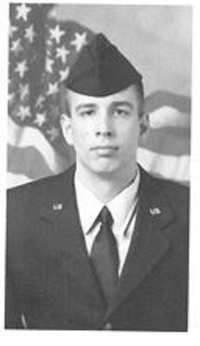“The military operates in a culture of respect, honesty, and transparency. nVent is very similar in that way. We have an open culture.”
We are excited to introduce you to Robert, a dedicated test/approvals engineer in nVent’s Electrical Connections business segment in Solon, Ohio. Drawing from his five-year military service, he has been instrumental in fostering innovation within our teams, using his unique insights to address complex challenges.
In addition to his problem-solving skills, Robert infuses his proficiency with organization and team collaboration into his daily life at nVent. Both are critical to his role, and are attributes acquired during his time in service that help him excel at work.
Robert values the familial, authentic connections he has with his fellow colleagues, particularly those with shared military experiences. He served on the leadership team of our Veterans Employee Resource Group (ERG) whose mission is to build awareness of the unique perspectives and skills veterans bring to the workplace.
Robert’s story offers a glimpse into life at nVent – an environment that encourages employees to bring bold ideas, be authentic, and build the future of a more sustainable and electrified world. Let’s dive into his inspiring journey.
______________________________________________________________________________________________________________________________________
What is your former branch of service and military specialty (MOS)?
US Air Force, ground radar maintenance technician (AFSC 2E-051). It was my foothold into electronics and got me started on my career path.
How was your transition once you got out of the service?
When I got out of the service in 2008, I got a job pretty shortly after I got out of service. I think it was about a month or two months. I worked for the company as a contract employee for about a year. After that, I decided to go back to college and pursue my four-year degree in engineering. I used my post 9/11 GI Bill benefits to go back to school and finally got my degree. Now I’m here!
How did you discuss your military experience and the transferable/technical skills you possess when you interviewed at nVent?
When I interviewed with my hiring manager and a couple other engineers that are on my team, they asked me more specific questions about projects that I had worked on or issues I had faced and how I brought skills that I learned in my military experience to solve those problems in a thoughtful way. It’s more about specific issues that came up during my time in the service, rather than a total breakdown of all the different things that I did. After five years of military service for me, or for most people in general, there’s going to be an awful lot of experiences. I just shared a few short anecdotes with them of things that stood out to me.
How do you incorporate your military service into your professional brand and daily work?
The biggest way I try to do that is organization. I work in the electrical lab at our site in Solon. We’re testing a ton of different products. The military is all about organization. I try to bring the same approach here by keeping things organized, labeled, and trying to do things in a timely manner. It’s more about being able to use general outlook skills and apply them to your day-to-day workload.
What support does nVent or the Veterans’ ERG offer that has helped your transitioning to civilian work?
Community and networking. I love having the benefit of working with a lot of other veterans and pretty closely, especially when I started here at nVent. Bryon Janas, one of our other veterans and ERG leadership members was a key connection. He taught me a ton starting out and having that shared military experience allowed us to bond very quickly. We could start on common ground and a place to move forward from. That was very helpful.
Knowing that there are other service members that are a part of our organization, being able to network and talk with them, being able to pick their brain about different issues, different things that come up, different problems that you face, and having them as a resource to help guide you through those difficult times, if they do come up, is invaluable. The other members have been a huge help to me and they are a big reason why I’m sitting here right now.
Do you have any advice for others who want to transition into the civilian workforce from the military?
That’s a tough one. I guess it would be to really take your time in trying to translate the skills and the different things that you learned during your time in the military to the civilian world. Try to find the wording that will help people understand the skills that you learned and the things that you worked on because it’s very foreign to most people that haven’t served in the military, or maybe don’t have family members that have served.
Write a resume that would really show the strong skills that you learned during your time in and really take your time in doing that. Try to be targeted in your approach as to how you do that because there’s so many different things that you learn during your time in the service. It’s easy to find bullet points – you learn so much. Really try to focus on this specific role that you’re trying to fill and what things you learn during your service time that translate to that role. If you’re looking at maybe a couple of different roles, you can even have a couple of different resumes highlighting some of the time that you spent in the service and how it translates to each one of those.
What is your biggest takeaway from your military service?
The biggest takeaway from my time in the service would be how much it felt like a family while I was in, how much it helped me grow as a person, and how much it really broadened my perspectives about people all over the world.
Luckily, I was able to travel quite a bit. I was stationed in Turkey and then in Italy. I did basic training at Lackland Air Force Base in Texas. I got to spend time in a lot of different places. You ultimately see that even though our backgrounds may vary quite a bit and our cultures are different, that people are very similar. We all want the same things usually, or at least pretty similar things. It was a great experience.
How does nVent’s culture appeal to specifically veterans?
nVent is an organization with a lot of structure, but it also allows you a lot of room to grow in different directions and choose the way that you want to grow and the things that you want to be involved in.
The military operates in a culture of respect, honesty, and transparency. I find that nVent is very similar in that way. We have an open culture. People really are passionate about what they do, and there’s so many different things to get involved in. It really gives you a lot of opportunity to go in the direction that you want to go, while also giving you structure in your day-to-day tasks and the position that you’re hired for. There’s a ton of opportunity. I mean, if that doesn’t appeal to you, I don’t know what will!
______________________________________________________________________________________________________________________________________
nVent is an equal opportunity employer who provides an inclusive and equitable work environment that drives innovation, connection and growth for our employees and business partners. We value all dimensions of diversity and work hard to make sure all voices are heard, respected and represented. Learn more about our nine ERGs and explore what a career at nVent could look like for you. We would love to have you on the team!

